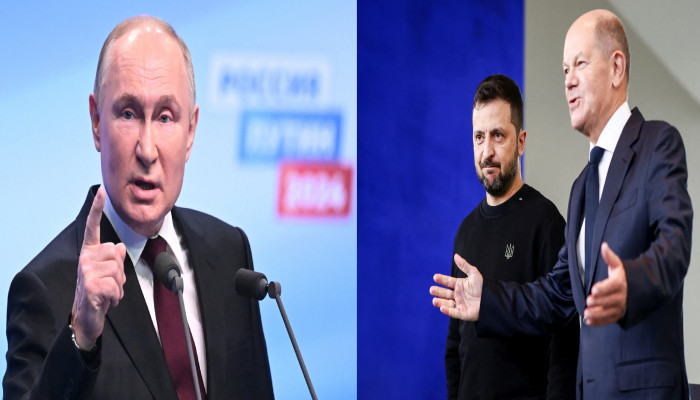Scholz breaks two-year silence, calls Putin; Zelenskyy slams move as opening ‘Pandora's Box’
- In Reports
- 06:18 PM, Nov 16, 2024
- Myind Staff
German Chancellor Olaf Scholz and Russian President Vladimir Putin had their first talk in almost two years on Friday, marking an important diplomatic conversation during the ongoing war in Ukraine, according to Al Jazeera.
Scholz, who faces a snap election in Germany in February after his coalition fell apart, urged Putin to hold negotiations with Ukraine in order to reach a "just and lasting peace." A German spokesperson told Al Jazeera that Scholz reaffirmed Germany's support for Ukraine "for as long as necessary," denounced Russian attacks on Ukrainian infrastructure, and warned that the conflict would worsen if North Korean troops were stationed in Russia to help defend the Kursk region.
According to Al Jazeera, Putin responded by calling the situation a direct outcome of NATO's "aggressive" policies and stressing that any possible deals must address the war's underlying causes and take into consideration Russia's territorial rights and security interests. According to Al Jazeera, the Russian leader stated that "possible agreements must proceed from new territorial realities, take into account the interests of the Russian Federation in the area of security, and most importantly, eliminate the root causes of the conflict." Putin also talked about the possibility of "mutually beneficial cooperation" with Germany, especially in the area of energy trade, if Berlin agreed.
After the call, Ukrainian President Volodymyr Zelenskyy voiced his worry that it would erode attempts to isolate Putin, calling it a "pandora's box" and cautioning that it would spark other discussions that could harm Ukraine's standing. “Now there may be other conversations, other calls. Just a lot of words. And this is exactly what Putin has long wanted: it is extremely important for him to weaken his isolation,” said Zelenskyy. The call took place during a crucial time for Ukraine, as Russian forces were advancing in the eastern regions. The possibility of Donald Trump being re-elected as US president has raised worries about the future of American support for Ukraine.
The timing of the call is linked to political changes in both the US and Germany. If Trump returns to the White House, it could change US policy on the war. Meanwhile, in Germany, growing public opinion, especially in the East, is pushing for an end to military support for Ukraine, according to Al Jazeera. Alongside the ongoing airstrikes that target both military and civilian facilities, the phone call occurred as Russian forces continued to make little but steady progress in eastern Ukraine.







Comments